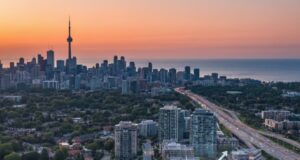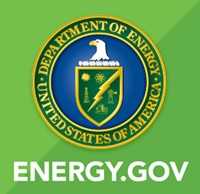Six communities vying for first Choice Neighborhood Implementation Grants
WASHINGTON, DCv – March 24, 2011 – (RealEstateRama) — U.S. Housing and Urban Development posted a Notice of Funding Availability(NOFA) today for the six entities that were last week named finalists to receive the first Implementation Grant funding through HUD’s new Choice Neighborhoods Initiative (CN).
On Friday, HUD announced that the entities listed below would compete for the $61 million in available funding that will be used to transform distressed areas of concentrated poverty into viable and sustainable mixed-income neighborhoods. (See grant summaries here.)
|
FINALISTS |
CITY |
TARGETED |
TARGETED |
|
City of Boston |
Boston |
Woodledge/Morrant Bay |
Dorchester Neighborhood |
|
Housing Authority of New Orleans and City of New Orleans |
New Orleans |
Iberville Housing Development |
Iberville/Treme |
|
Housing Authority of the City of Seattle |
Seattle |
Yesler Terrace |
Yesler Neighborhood |
|
Housing Authority of the City of Tampa |
Tampa |
Central Park Village |
Central Park |
|
McCormack Baron Salazar, Inc. and San Francisco Housing Authority |
San Francisco |
Alice Griffith |
Eastern Bayview |
|
Preservation of Affordable Housing, Inc. and City of Chicago |
Chicago |
Grove Parc Apartments |
Woodlawn |
“There are many communities across the country that desperately want – and deserve – an opportunity to transform some of their most distressed neighborhoods into areas of opportunity and hope,” said HUD Secretary Shaun Donovan. “These finalists submitted transformation plans for these neighborhoods that will tackle intergenerational poverty and address not just public and affordable housing, but the education, transportation and employment challenges that so often surround that housing. President Obama has said that there is no greater economic policy than one that invests in our children’s future and helps America out-educate the world. But that’s simply not possible if we leave a whole generation of children behind in our poorest neighborhoods.”
The entities successfully completed a streamlined Round 1Choice Neighborhoods grant application to be named finalists. They have already undertaken the comprehensive local planning process and are ready to move forward with their Transformation Plan to transform their distressed neighborhoods. This Choice Neighborhoods Round 2 Implementation Grants NOFA will give these finalists the opportunity to assemble and submit a more detailed application that could garner them up to $30.5 million to develop a “choice neighborhood.” HUD anticipates awarding two to four grants by the end of September 2011.
These finalists will be ranked and rated on how well their vision addresses Choice Neighborhoods’ three core goals:
* Housing: Transform distressed public and assisted housing into energy efficient, mixed-income housing that is physically and financially viable over the long-term;
* People: Support positive outcomes for families who live in the distressed and soon to be transformed development(s) and the surrounding neighborhood, particularly outcomes related to residents’ health, safety, employment, mobility, and education; and
* Neighborhood: Transform neighborhoods of poverty into viable, mixed-income neighborhoods with access to well-functioning services, high quality public schools and education programs, high quality early learning programs and services, public assets, public transportation, and improved access to jobs.
Within these broad categories are simple but significant actions to ensure that future generations will not be left behind academically or economically. For example, as part of their Transformation Plans, finalists were required to develop a comprehensive education strategy to ensure that neighborhood residents between the ages of 0-18 will have access to high-quality early learning programs, schools, and education programs. They were also required to include broadband infrastructure for Internet access in all new housing that will allow more frequent Internet usage, which provides greater access to employment information, as well as health, education, financial and other services. The new NOFA grants higher scores for high-quality design and green building – encouraging communities that are not just visually attractive, but more functional and energy efficient for neighborhood residents.
The Choice Neighborhoods Initiative is a centerpiece of the Obama Administration’s interagency Neighborhood Revitalization Initiative – a collaboration between the Departments of Housing and Urban Development, Education, Justice, Treasury and Health and Human Services to support the ability of local leaders from the public and private sectors and attract the private investment needed to transform distressed neighborhoods into sustainable, mixed-income neighborhoods with the affordable housing, safe streets and good schools every family needs.
Congress approved the Choice Neighborhoods Initiative with the passage of HUD’s FY 2010 budget, allowing HUD to use $65 million in funding to provide competitive grants to assist in the transformation, rehabilitation and preservation of public housing and privately owned HUD-assisted housing. Last week, HUD announced that 17 communities were awarded $4 million as the first recipients of Choice Neighborhoods Planning Grants.
Choice Neighborhoods builds on the successes and lessons of HUD’s HOPE VI program and widened the traditional pool of eligible applicants by allowing, in addition to public housing authorities, local governments, nonprofit organizations and for-profit developers (who apply jointly with a public entity) to apply.
###
HUD’s mission is to create strong, sustainable, inclusive communities and quality affordable homes for all. HUD is working to strengthen the housing market to bolster the economy and protect consumers; meet the need for quality affordable rental homes: utilize housing as a platform for improving quality of life; build inclusive and sustainable communities free from discrimination; and transform the way HUD does business. More information about HUD and its programs is available on the Internet at www.hud.gov and espanol.hud.gov.
Contact:
Donna White
(202) 708-0685












